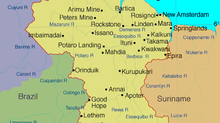First case of autochthonous dengue near Lyon, France
This week, French health authorities including the local Agence Régionale de Santé Auvergne Rhône-Alpes have confirmed the first case of autochthonous dengue in the Rhône region of France.

Auvergne Rhône-Alpes is a large region of France, bordering with Switzerland and Italy to the east, and includes several important urban centres including the city of Lyon, Saint-Etienne and Grenoble.
Serological tests confirmed that one patient was indeed locally infected with the dengue virus in July 2019, without having travelled out of the area in the preceding two weeks.
Dengue fever is transmitted by the tiger mosquito, which has been increasingly established in the southern regions of France, as well as numerous Mediterranean countries and areas of southern Europe. The spread of this disease vector to new environments combined with the ever-increasing travel to dengue-endemic regions has been significantly increasing the risk of dengue infection in non-endemic countries.
In this particular case, a robust epidemiological questionnaire rolled out by local health authorities in the near-proximity of where the patient lived was able to establish the origin of the infection, linking it to another patient who suffered from a dengue infection during a recent trip to Asia. Tiger mosquitoes do not generally travel large distances and the original patient lived about 150m from the second patient who contracted the locally-acquired infection.
Local authorities have taken this opportunity to reiterate the importance of communities protecting themselves against mosquito bites, whether through the use of repellents, nets over beds or screening windows, etc. But this on its own isn’t sufficient, and importantly, community support is essential in eliminating stagnant water sources which provide ideal breeding grounds for mosquitoes even when sanitary authorities proceed to significant insecticide campaigns.


























